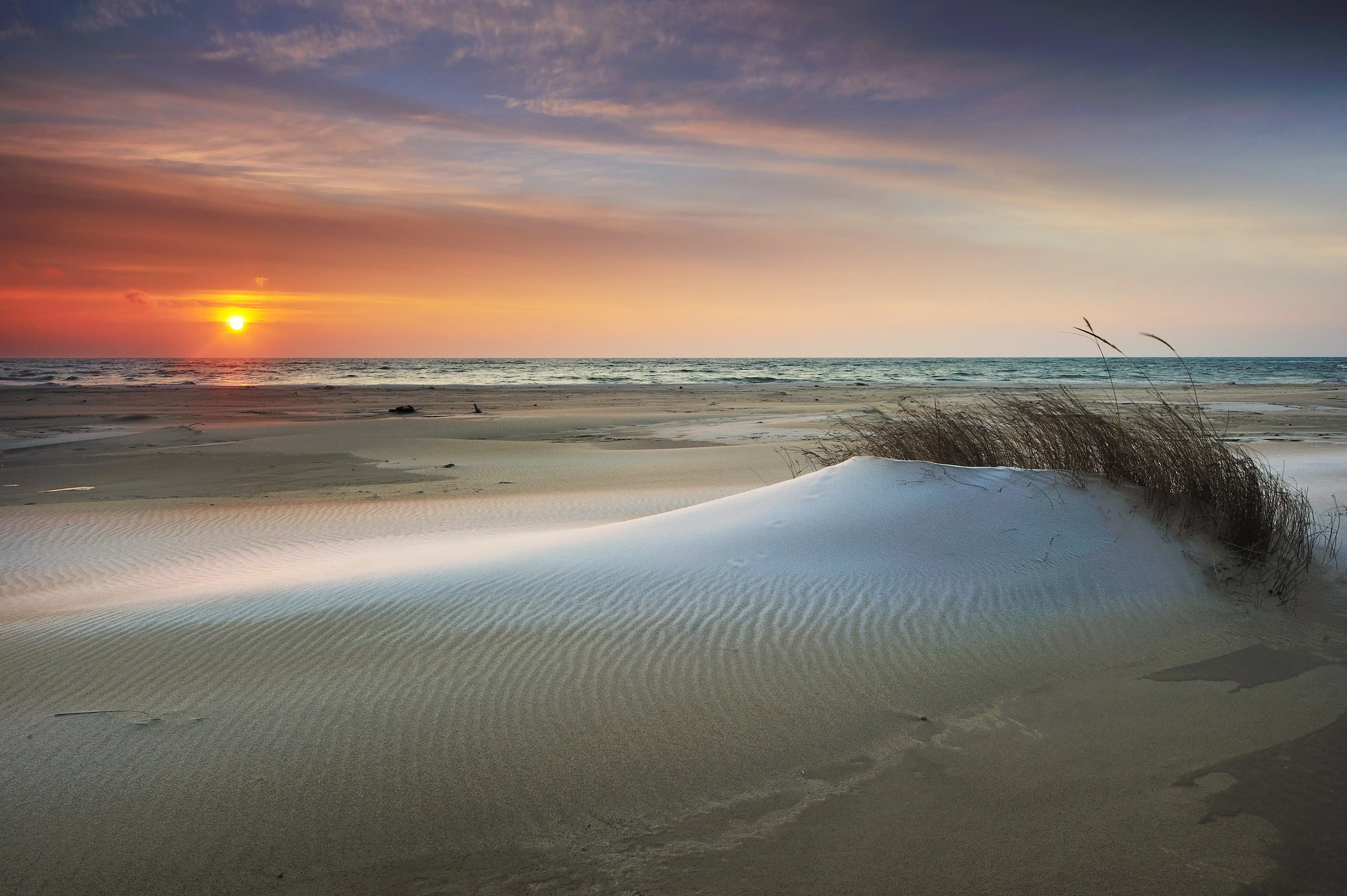The Great Lakes, a magnificent collection of five freshwater giants straddling the border between the United States and Canada, offer diverse landscapes, ecosystems, and cultural experiences. These lakes, Superior, Michigan, Huron, Erie, and Ontario, are significant for their ecological importance and the myriad of adventures and explorations they present to the curious traveler. This guide explores the heart of each lake’s unique offerings, providing an insider’s perspective on immersing oneself in the natural beauty and cultural richness of these freshwater giants.
1. Lake Superior – The Wild North
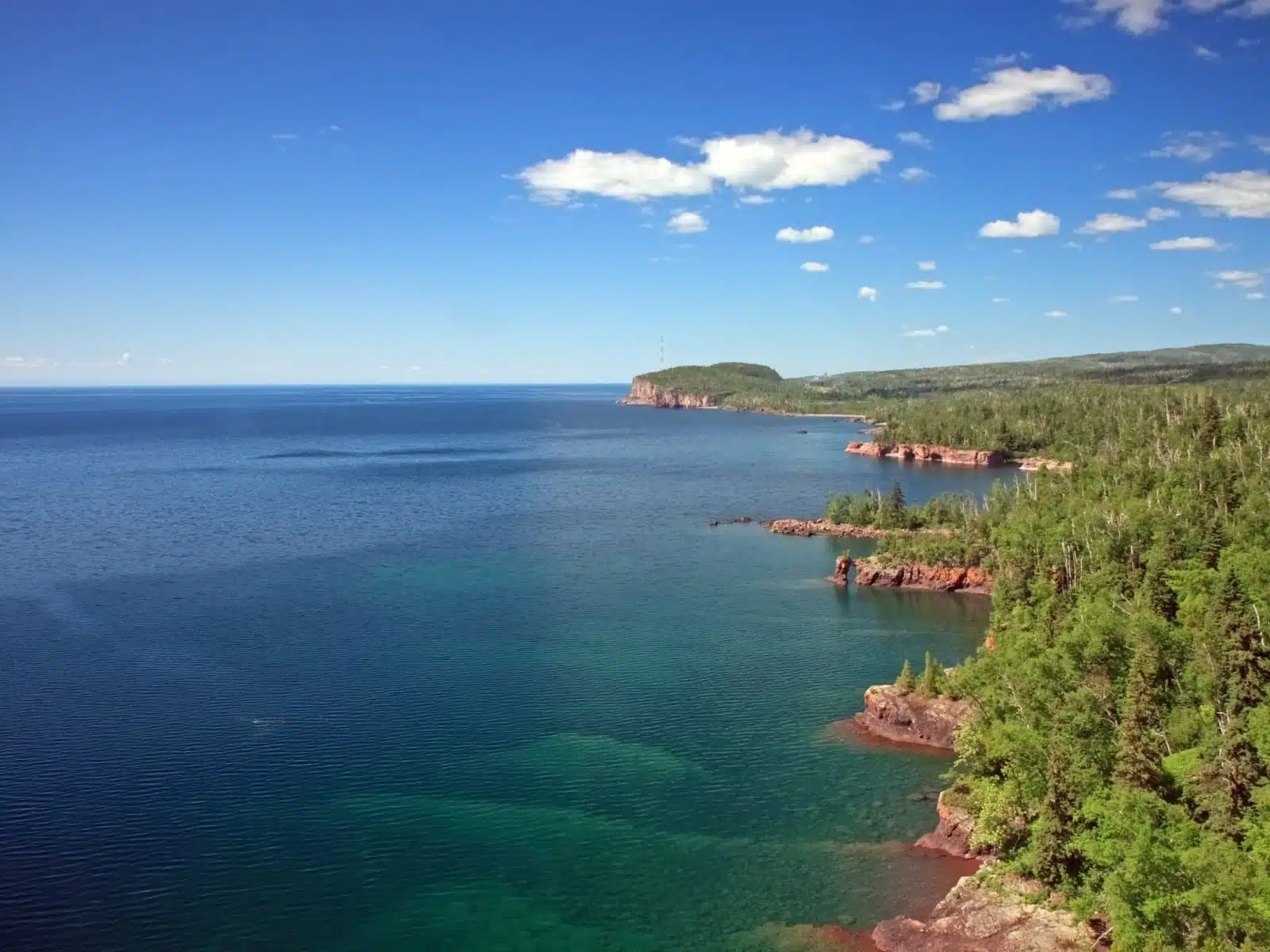
Image Credit: Shutterstock / nikitsin.smugmug.com
Lake Superior, the largest and most northerly of the Great Lakes, celebrates nature’s grandeur and power. Its vast, cold waters, surrounded by dense forests, high cliffs, and miles of untouched beaches, create a landscape of rugged beauty that beckons the adventurous spirit. The lake’s remote location adds to its wild, pristine character, offering visitors a unique opportunity to disconnect and immerse themselves in pure nature. Activities here are as diverse as the landscape itself, ranging from kayaking along the dramatic Pictured Rocks National Lakeshore, where mineral stains paint the cliffs in vibrant hues, to hiking the Superior Hiking Trail, which offers over 300 miles of scenic paths along the ridge overlooking the lake. The region’s rich history is palpable, from ancient indigenous cultures to the remnants of the early 20th-century shipping industry. It provides a deep connection to the past for those who explore its shores.
Insider’s Tip: For a truly unique experience, visit the Apostle Islands National Lakeshore. The area is renowned for its sea caves, which, in winter, transform into a surreal landscape of ice formations accessible by foot or ski.
When to Travel: The best time to visit Lake Superior is from late spring to early fall (May to October) when the weather is mild and the natural attractions are most accessible.
How to Get There: The most convenient access points to Lake Superior are through Duluth, Minnesota, and Thunder Bay, Ontario. Both cities offer airports serviced by major airlines, making them ideal starting points for your Lake Superior adventure.
2. Lake Michigan – Urban Shores and Sandy Dunes
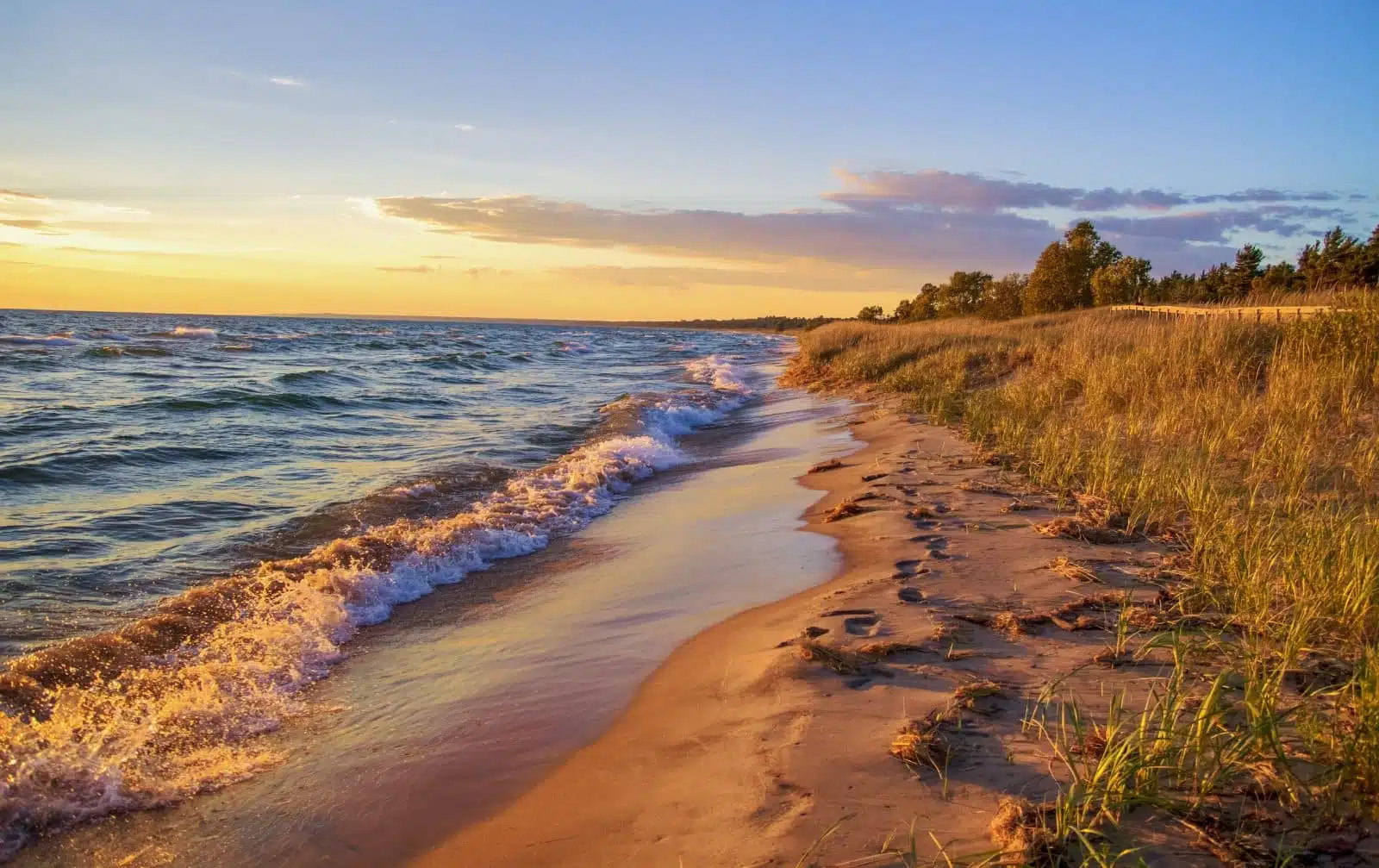
Image Credit: Shutterstock / ehrlif
Lake Michigan offers a striking contrast between the urban bustle and serene natural beauty. Its shores, touching four states, are a myriad of bustling cities, tranquil beaches, and towering dunes. The lake’s eastern coastline is famed for the Sleeping Bear Dunes National Lakeshore, where sand dunes rise hundreds of feet above the lake, offering stunning vistas and challenging hikes. Meanwhile, cities like Chicago and Milwaukee provide rich cultural experiences, from world-class museums and vibrant music scenes to impressive architectural feats. The lake’s waters are a haven for sailing, fishing, and swimming, making it a versatile destination for relaxation and adventure. The cultural mele along its shores, reflecting the diverse communities that have thrived here, adds depth to any visit, inviting travelers to explore and engage with the region’s heritage and contemporary vibrancy.
Insider’s Tip: For an off-the-beaten-path experience, explore the lake’s lesser-known northern shores in Michigan’s Upper Peninsula, where small fishing towns and lighthouses dot the landscape, offering a glimpse into the lake’s maritime history.
When to Travel: Summer (June to August) is ideal for beach activities and city festivals, while fall (September to October) offers stunning foliage along the lake’s shores.
How to Get There: Chicago’s O’Hare International Airport is a major gateway, providing easy access to Lake Michigan and numerous interstate highways that offer scenic drives along the lake’s coast.
3. Lake Huron – The Forgotten Frontier
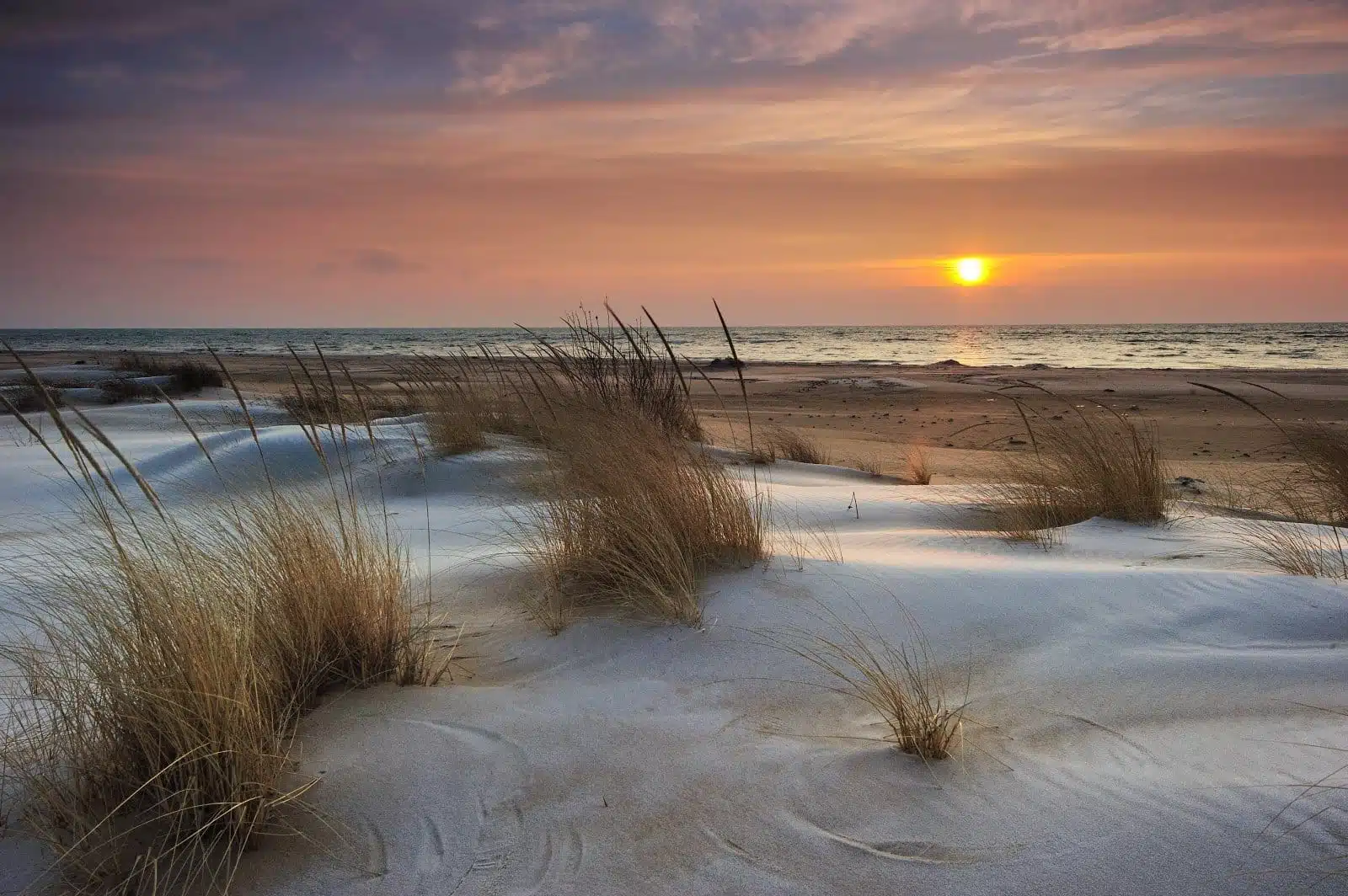
Image Credit: Shutterstock / John McCormick
With its vast and varied landscapes, Lake Huron remains one of the Great Lakes’ best-kept secrets. The lake’s eastern shore in Canada reveals the rugged beauty of the Bruce Peninsula and the tranquil waters of Georgian Bay, offering some of the most spectacular scenery in the Great Lakes region. Visitors can explore the world’s largest freshwater archipelago, the Thirty Thousand Islands, where kayaking or boating reveals hidden coves, secluded beaches, and ancient forests. The western shore, with its historic lighthouses and charming coastal towns, tells stories of maritime history and the simple pleasures of lakeside life. Lake Huron’s waters are a diver’s paradise, home to hundreds of shipwrecks that tell tales of storms, battles, and the perils of early navigation on the Great Lakes. This combination of natural beauty, history, and adventure makes Lake Huron a destination that offers something for every traveler, from the solitude seeker to the history enthusiast.
Insider’s Tip: Dive into the history and mystery of Lake Huron by exploring the numerous shipwrecks that lie beneath its waves, particularly in the Thunder Bay National Marine Sanctuary.
When to Travel: Late spring through early fall (May to September) offers the best weather for exploring both the natural and cultural attractions of Lake Huron.
How to Get There: The closest major airports are in Toronto, Ontario, and Detroit, Michigan, with several smaller airports closer to specific destinations around the lake.
4. Lake Erie – The Vineyard Lake
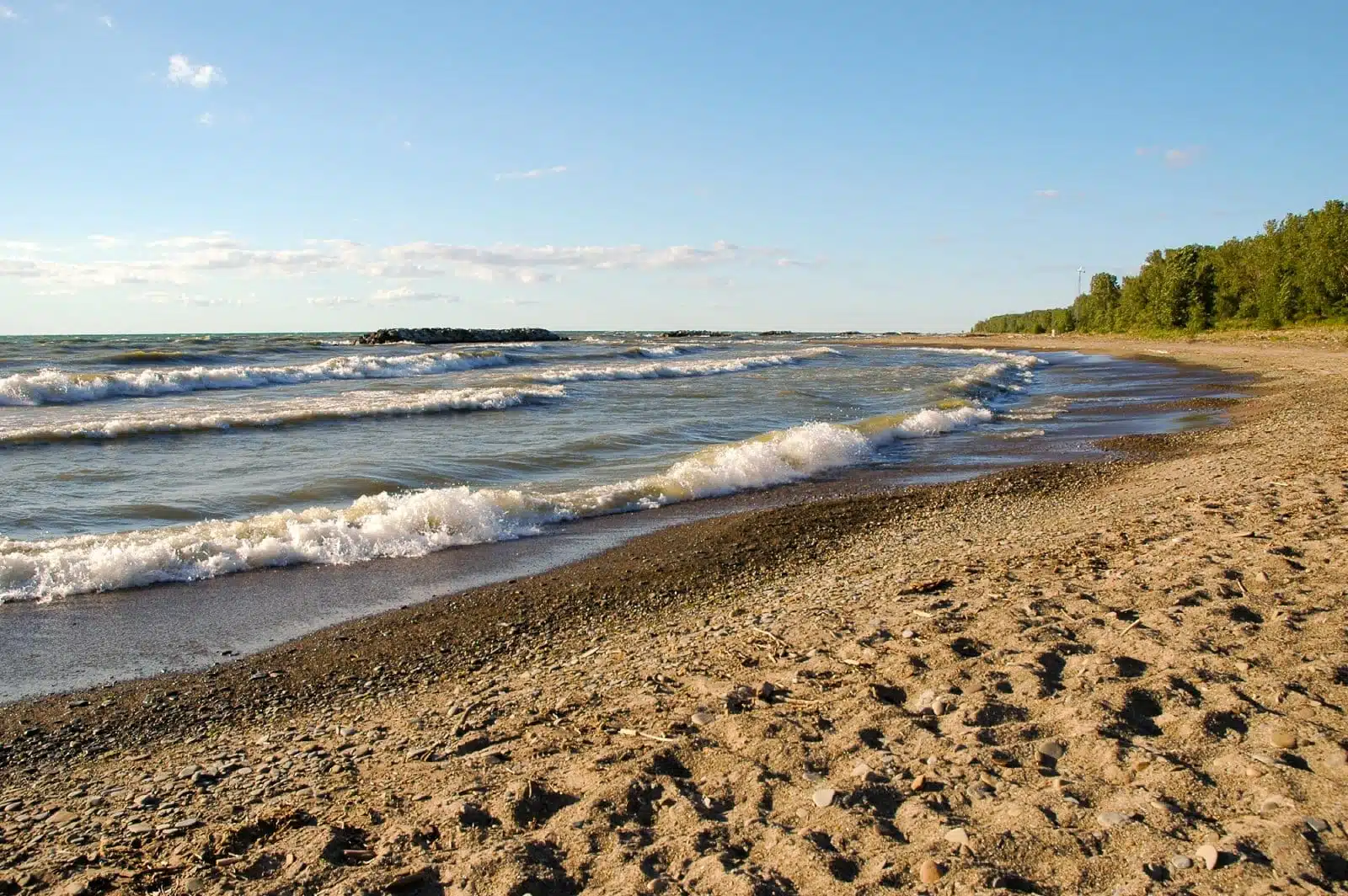
Image Credit: Shutterstock / Jeffrey M. Frank
Lake Erie, the shallowest of the Great Lakes, surprises many with its mild climate and fertile lands, which support a flourishing wine industry. The lake’s southern shores in the United States and Canada are dotted with vineyards and wineries that produce award-winning wines, making it a prime destination for oenophiles and casual wine enthusiasts alike. Beyond its vinicultural appeal, Lake Erie is a haven for wildlife, particularly birds, making it a premier destination for birdwatching, especially during migration seasons. The lake’s islands offer a retreat from the fast pace of modern life, with Put-in-Bay and others providing a mix of natural beauty, historical sites, and leisurely activities. The combination of agricultural richness, natural beauty, and recreational opportunities makes Lake Erie a unique destination within the Great Lakes region, offering a blend of experiences catering to various interests.
Insider’s Tip: For an immersive experience in Lake Erie’s wine culture, plan a visit during the fall harvest season, when many vineyards offer tours and tastings showcasing the region’s renowned ice wines.
When to Travel: The ideal times to visit Lake Erie are late spring to early fall (May to September), with summer being peak season for water activities and vineyard tours.
How to Get There: Cleveland, Ohio, and Buffalo, New York, serve as major gateways to Lake Erie, with both cities offering international airports and easy access to the lake’s attractions via road.
5. Lake Ontario – The Gateway to the East
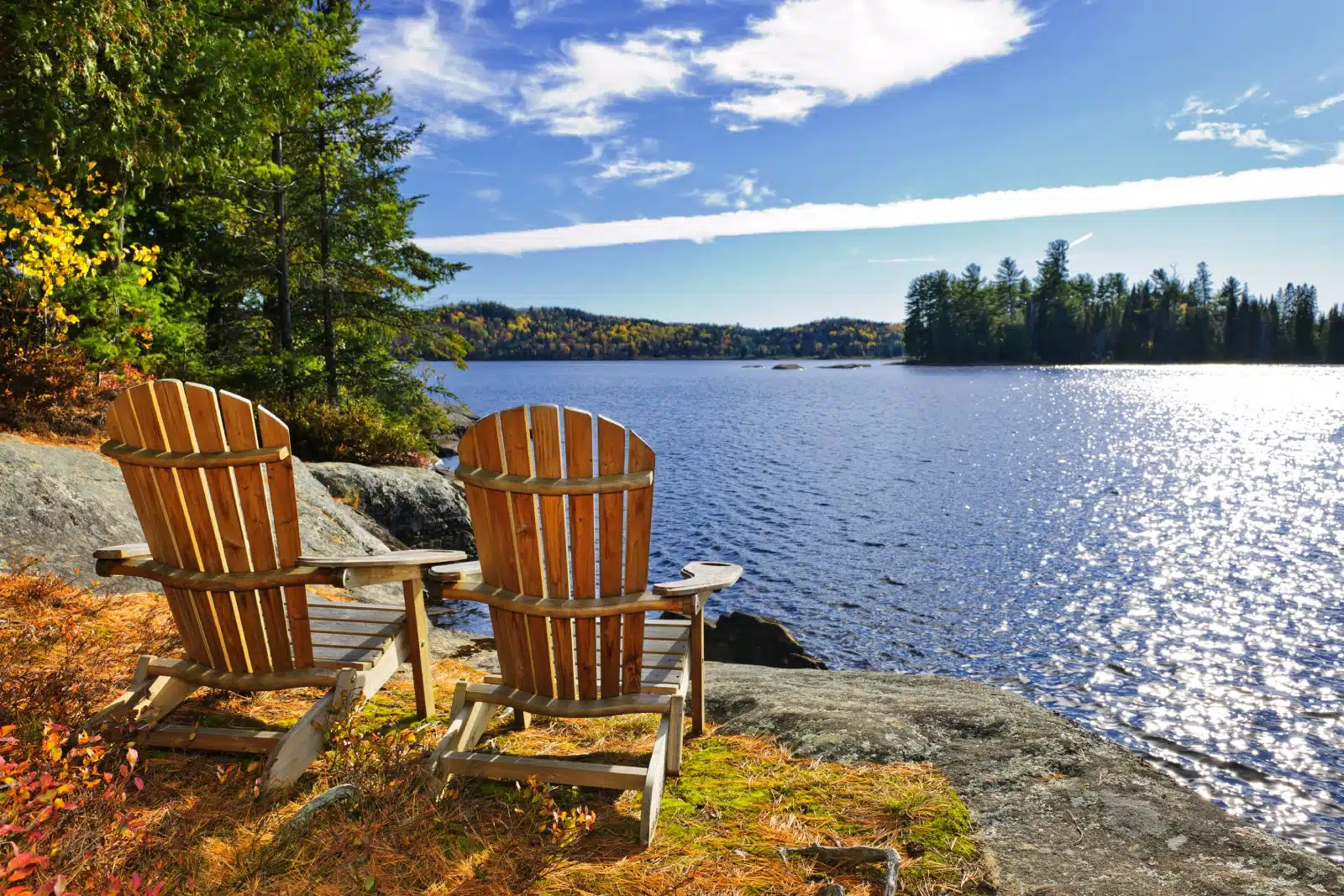
Image Credit: Shutterstock / Elena Elisseeva
Lake Ontario, acting as the gateway between the Great Lakes and the Atlantic Ocean, holds a strategic position that has shaped its history and development. The lake is framed by vibrant urban centers like Toronto and Rochester, offering rich cultural experiences, from the arts and cuisine to festivals and nightlife. Beyond the cities, the lake’s natural beauty is on full display in areas like the Thousand Islands. In this picturesque archipelago, boating and fishing are popular pastimes. The region’s history, from indigenous settlements to European colonization and the birth of modern Canadian and American societies, is evident in historic sites and museums along its shores. Lake Ontario’s diverse offerings, from urban exploration to natural escapades and historical journeys, make it a comprehensive destination for travelers seeking to experience the essence of the Great Lakes region.
Insider’s Tip: Explore the Thousand Islands by boat to fully appreciate the area’s stunning natural beauty and discover hidden gems, including secluded beaches and historic lighthouses.
When to Travel: The best time to visit Lake Ontario is from May to October, with the summer months offering the widest range of outdoor and water-based activities.
How to Get There: Toronto Pearson International Airport in Canada and Syracuse Hancock International Airport in New York provide convenient access to Lake Ontario and extensive road networks that make exploring the lake’s diverse attractions easy.
The Bottom Line
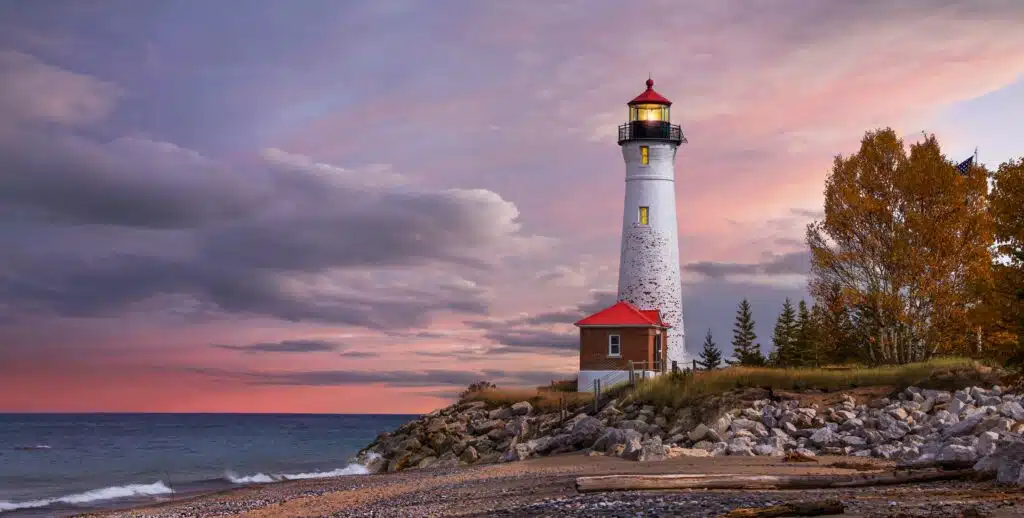
Image credit: Shutterstock / Jamie Boggess
Exploring the Great Lakes is an adventure that promises a journey through some of North America’s most stunning natural landscapes and an immersion into the rich cultural heritage that defines this region. Whether you’re drawn to the wild, untamed shores of Lake Superior, the urban vibrancy and sandy dunes of Lake Michigan, or the forgotten frontiers of Lake Huron, each lake offers its own unique set of experiences and stories. As you plan your journey, remember that the true essence of the Great Lakes lies in the discoveries, and the connections you make along the way.
More From The Green Voyage
Top 10 Trending Travel Destinations 2024
6 Essential Banking Apps for International Travel – Managing Your Finances on the Go
Traveling With Kids – 10 Tips to Create Memorable Family Holidays
The post Exploring the Great Lakes 2024 first appeared on The Green Voyage.
Featured Image Credit: Shutterstock / John McCormick.
For transparency, this content was partly developed with AI assistance and carefully curated by an experienced editor to be informative and ensure accuracy.
